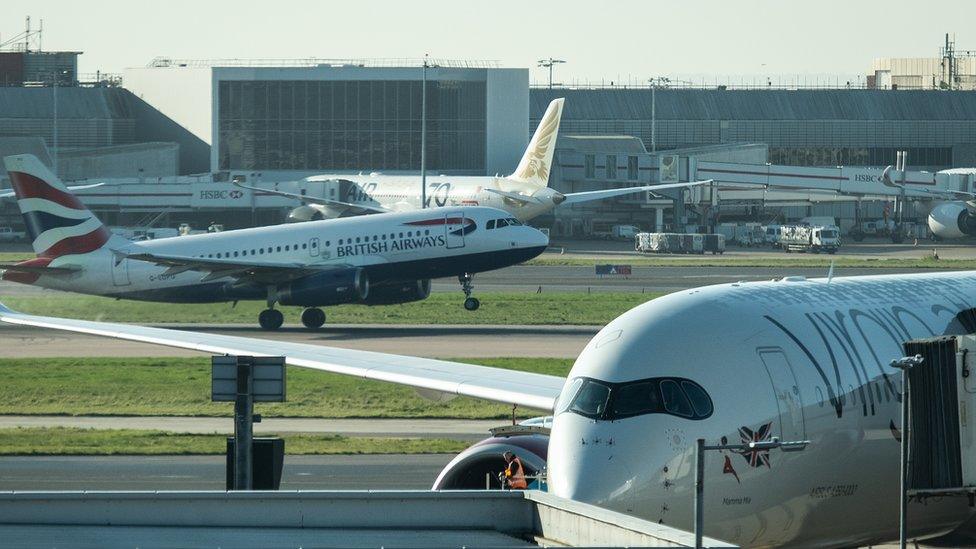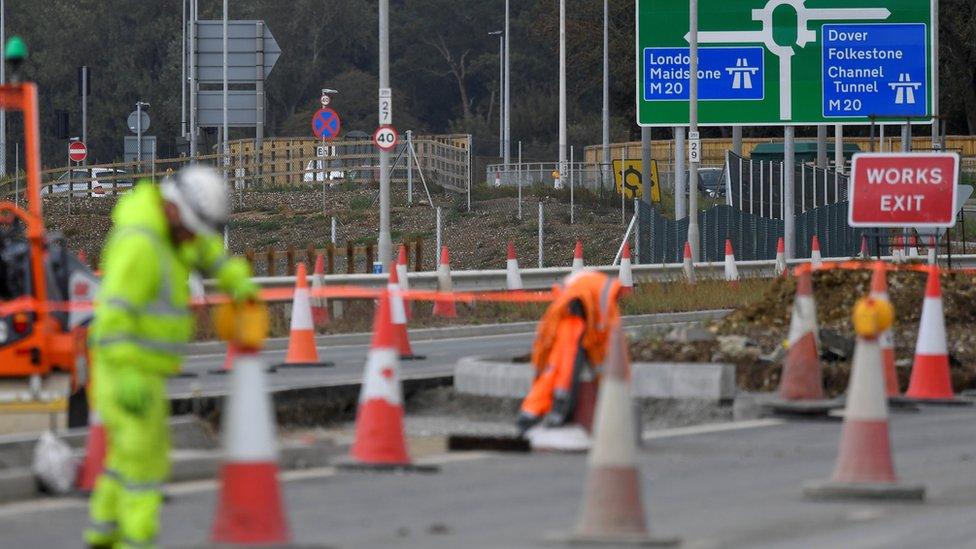Climate change: Law used to pressure government
- Published

Environmentalists are using the law to pressure the government to force infrastructure plans into line with its climate change commitments.
Ministers are facing a fusillade of legal challenges on airports, energy and roads.
And now they have been threatened with new legal action unless their airports strategy reflects the drive towards a zero-emissions economy.
A separate legal challenge to the government's road building strategy from campaign group Transport Action Network is already under way.
Earlier this week, campaigners won a battle to force ministers to review their energy policy statement so it reflects climate concerns.
The new action against the airports strategy comes from a not-for-profit group, the Good Law Project.
It is undaunted by this week's Supreme Court defeat, when judges said the 2018 document didn't break the law because at the time the UK was aiming for a 80% emissions cut by 2050.
Good Law accepts the Supreme Court ruling - but insists that the UK airports strategy must now be aligned with the Climate Change Act, which is now in force and which demands almost zero emissions by 2050.
The aviation strategy was agreed in the light of fears that airport capacity in south-east England was becoming over-loaded.
Good Law says the strategy should be reviewed because of the likely long-term dampening effect on business travel from the Covid pandemic - that's as well as the carbon impacts of the runway.
A government spokesperson said it had always been clear that Heathrow expansion is a private sector project which must meet strict criteria on air quality, noise and climate change.
"We take our commitments on the environment and reducing greenhouse gas emissions seriously," they added.
"The government is planning to consult next year on an aviation decarbonisation strategy, which will set out proposals for how the aviation sector will play its part in delivering our net zero commitments."

Government plans for road building are also facing a climate challenge in the courts.
But Good Law's hopes for an immediate aviation review are based on a near-identical action it started in March to force the government, external to revise its Energy National Policy Statement in the light of net zero commitments.
At first, Business and Energy Secretary Alok Sharma refused to comply, but earlier this week he capitulated.
Good Law expects the government to follow suit by revising the airports strategy shortly, too - especially as Prime Minister Boris Johnson has previously voiced opposition to Heathrow expansion and is reputed to be looking for an easy way to stop it.
A spokesperson for Good Law said: "Boris Johnson won't need to 'lie down in front of those bulldozers and stop the construction of that third runway" (as he promised previously).
"He'll merely need to ensure that the proposed development of Heathrow is considered under the legal regime that prevails today. It's not too late to stop Heathrow expansion."
Human rights challenge
Another group, Plan B, plans to challenge every stage of the Heathrow affair in the courts - including at the European Court of Human Rights, where campaigners will argue that relying on outdated emissions targets is inconsistent with the right to life.
The advisory Climate Change Committee recommends that building a third runway at Heathrow without shrinking airport capacity elsewhere would breach UK emissions targets.
The action against the road-building strategy is being taken by the Transport Action Network. It challenges the government's 2014 National Networks National Policy Statement, which underpins its £27bn roads programme.
Campaigners argue that this, too, will breach climate targets.
Correction 15 April 2021: This article has been amended following a complaint to the BBC's Executive Complaints Unit.
Related topics
- Published4 December 2020

